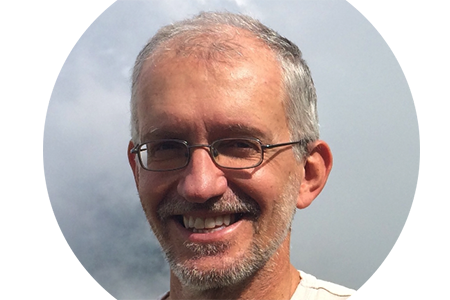Marco Dorigo é o proponente do conhecido algoritmo de otimização meta-heurístico “Ant Colony Optimization” e um dos principais investigadores na área de “swarm robotics”, que permite a grupos de agentes/robôs individualmente muito simples obter inteligência de grupo que permita coordenar grandes grupos de agentes/robôs autónomos sem depender de qualquer infraestrutura externa ou de qualquer forma de controlo centralizado. Esta abordagem é bastante promissora para a realização de tarefas demasiado difíceis ou perigosas para os seres humanos utilizando conjuntos de agentes/robôs muito simples e baratos.
”Mergeable Nervous System for Robot Swarms” será apresentado dia 29 de junho, na I-105, às 16:00.
Abstract:
Typically, robot swarms coordinate through self-organization. With the proposal of the mergeable nervous system concept, we study how self-organisation can be made more powerful as a tool to coordinate the activities of a robot swarm by injecting some components of hierarchical control. In the presentation, I will give a brief overview of the mergeable nervous systems concept and then illustrate the first steps we have made in implementing it in a heterogeneous swarm composed of drones and ground robots.
Bio:
Marco Dorigo received the Ph.D. degree in electronic engineering in 1992 from Politecnico di Milano, Milan, Italy. From 1992 to 1993, he was a Research Fellow at the International Computer Science Institute, Berkeley, CA. In 1993, he was a NATO-CNR Fellow, and from 1994 to 1996, a Marie Curie Fellow. Since 1996, he has been a tenured Researcher of the FNRS, the Belgian National Funds for Scientific Research, and co-director of IRIDIA, the artificial intelligence laboratory of the ULB. His current research interests include swarm intelligence, swarm robotics, and metaheuristics for discrete optimization. He is the Editor-in-Chief of Swarm Intelligence, and an Associate Editor or member of the Editorial Boards of many journals on computational intelligence and adaptive systems. Dr. Dorigo is a Fellow of the AAAI, EurAI, and IEEE. He was awarded numerous international prizes among which the Marie Curie Excellence Award in 2003, the IEEE Frank Rosenblatt Award in 2015, and the IEEE Evolutionary Computation Pioneer Award, awarded in 2016.
